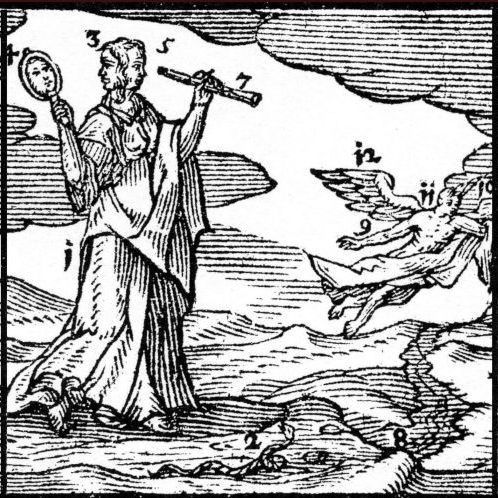I have been – like anyone else in Italy – in quarantine for the past three weeks. Optimistically, Italy will be on lockdown for the next two weeks as well; realistically it might well be for many more. The Covid-19 emergency started escalating on 7 March 2020 and has unfolded through the prime minister Giuseppe Conte’s murky public announcements, all made late at night. For two weeks now, almost every morning we have woken up to even stricter rules, the latest forbidding even solitary strolls and runs in the park. We have been confined at home and told that social isolation is an act of social responsibility and solidarity. It is an act of respect towards the medical personnel working relentlessly, and an act of care towards the most vulnerable population, the elderly, the immunosuppressed and those with underlying medical conditions.
This short piece is an improvised inquiry into some Italians’ eerie yearning for more state control and repressive measures. Unlike the refugee crisis, the austerity measures and environmental collapse which have affected some while leaving others either untouched or just indifferent, the Covid-19 crisis is now out to get us all. Whereas the past decade witnessed the success of party politics based on fear mongering, today political leaders are banking on those internalised fears. However, the current socio-economic insecurity and unprecedented health risks that Covid-19 poses to all are reconfiguring the relations between neoliberalism and authoritarianism, while breeding many Italians’ desires for a strong man in power.
In Italy, as well as in France, the pandemic emergency narrative has disproportionately grown out of war metaphors: from ‘the medical personnel is fighting a battle against time and an invisible enemy’ to ‘now we are at war’, warfare has provided words, concepts and ideological background to talk about today’s Covid-19 crisis. While Michel Foucault (2001, 2003) has extensively unravelled the dangerous liaison between biomedicine and politics, Susan Sontag’s Illness as metaphor (1978) offers a thoughtful critique of the distortions which follow the extension of illness images in more grandiose schemes of warfare. Covid-19 is the fierce enemy against which we – individually and collectively – must wage war. The costs of this war will be high indeed, but citizens must be willing to sacrifice: giving up individual freedom today for the collective benefit, and for greater freedom tomorrow. Filippo Tommaso Marinetti’s Manifesto of Futurism (1909) provides an unexpected impetus to read today’s warfare metaphors and the risk of contagion: war is the means to sanitise the nation and ultimately ensures hygiene. With no apparent hesitation, many Italians have embraced the war metaphor and recoded it in cheap patriotic appeals: ‘Our grandparents were asked to go fighting World Wars I and II. We are just asked to fight this war staying home.’
As much as washing hands figures as a crucial measure for the prevention of contagion, it seems reasonable to conclude that more than one hundred years later, war and hygiene are still what it takes to protect society.
Despite the strict lockdown measures, in some Italian cities people are still being caught wandering through the streets, walking their dogs too far away from their homes, hoarding supplies from supermarkets, engaging in behaviours that would have been unremarkable until a few weeks ago, but are now classified as antisocial. The army – the prime minister has recently warned – might come out onto those streets that have already been patrolled by cops for weeks: if Italians cannot cope with simple rules (stay home; don’t go out unless it’s necessary), the army will help them comply. And a fascinating switch occurs here, which, I think, speaks to and pushes further Stef Jansen’s (2014) take on people’s hope for and against the state. It is no longer the state alone attempting an authoritarian turn, it is a growing number of citizens dreaming and asking – finally out loud – for the strong man in power. In the face of the threat that the pandemic poses to both individual health, and society as a whole, people’s yearning for the strong man in power is more than an attempt at non-evading the state’s grids that Jansen (2014) records in besieged Sarajevo. All the same, Italians’ outcry for strong leadership also falls far beyond the principles of the Hobbesian Leviathan: the state is not invoked to maintain the social contract, but rather to protect individual rights to health which are no longer safeguarded.
The argument underlying such desires grows out of national stereotypes that Italians seem to have embraced as well as some historical ‘fake news’, such as ‘We, Italians, never abide by the rules but he would have known how to make people respect them.’ He stands for Benito Mussolini. He lost the war, yet he knew how to enforce war measures, cut down on people’s liberties and created a police state where democratic rule was (had to be!) suspended because of the undisciplined behaviour of the population. Italians are like children and children are frequently unruly. Unfortunately, the infantilisation of the population is a recurrent trope in Italian politics. A timely example is offered by the attacks by many male politicians on women’s rights to a safe abortion: they say they want to protect us from taking ‘wrong’ decisions about our bodies and our lives. In the breath-taking film Investigation of a citizen above suspicion (1970), Elio Petri magnificently showed how the infantilization of society is an effective tool of control and repression. In the film, Gian Maria Volonté plays the role of a high-ranking, corrupt, murderous, right-wing police officer who is accorded emergency powers to curb the social protests and unrest that shattered Italy throughout the 1960s and 1970s. His speech ends with a medical diagnosis requiring a political solution:
‘These people are children; the city is ill: doctors have the task to cure, we [state officers] must repress [protests]: repression is our vaccine.’
(‘Il popolo è un minorenne; la città è malata: c’è a chi spetta il compito di curare, a noi spetta il dovere di reprimere: la repressione è il nostro vaccino.’ [Translation by L.B.])
Predictably, war metaphors tend to capture – simultaneously invite – a surge in patriotic sentiments and unwieldy desires for an authoritarian state: to win a war, strong leadership must marshal the army and rule over the population. Like a Machiavellian prince, the strong man in power is a bold and confident ruler, unafraid to take unpopular decisions for which he is no longer accountable to the people. He knows what is best for them and he knows better than them what they need and deserve.
The rise of the strong man to power would definitely seal the transition from a ‘nanny state’ to a strict ‘daddy state’.
This means a state that gives priority to duties over rights and allocates sanctions over support through the grim rhetoric of the obligations to citizenship (Wacquant 2010). I find such gendered signification of the state alarming, indeed as not just male but as the father: it is telling of both deeply gendered impacts of its policies and the sexual division of productive and reproductive labour which undergird its rule.
I have always been fascinated by the political and ideological short circuit of the Italian take on individual freedom and the desire for some authoritarian ruler: how can the mythology of freedom above and beyond any rule fuse with a never-waned desire for the strong man in power? In the face of the progressive militarisation of society and the curtailment of liberties, it is legitimate to wonder whether a return to the status quo ante is possible, or whether the current emergency measures mark a point of no return. Any crisis, Janet Roitman (2014) reminds us, can either signal a decisive turning point or become a chronic condition. It can either signify a contingency, a temporal deviation from the norm, or provide a space in which to articulate a critique of the status quo.
Amid the Covid-19 crisis, the most optimistic Italians argue that the normality before this crisis was problematic, too, and no one desires a return to that normality.
Today’s crisis has shown the flaws in the system and opened up new margins in which to experiment with practices of solidarity and care: there is hope for change. Others suspect that this authoritarian turn is a point of no-return: now more than ever, Italians seem to want a strong man in power, regardless of whether the enforcement of the authoritarian state and the securitization of borders might come with a drastic restriction of liberties. Some may argue that people’s yearnings for authoritarian states boom in times of socio-economic uncertainties. In the thought-provoking article ‘Why do we desire our enslavement as if it were our salvation?’, Francesco Raparelli (2018) suggests that people’s desires for an authoritarian state grow stronger in the very moment they realise that the nation-state as they knew it is falling apart. The disintegration of the welfare system demands a return to the traditional family; the rediscovery of white and colonial supremacy ramps up while women’s freedoms are increasingly threatened by male violence and misogynist politics.
What we witness today in Italy is the result of almost ten years of economic austerity, of which the Covid-19 crisis is a manifestation and a continuation. The emergency measures that are mobilised today to face it are menacing re-enactments of the exceptional measures deployed to face the economic crisis ten years ago. Its impact on Southern Europe is now fully visible: Italian hospitals on the verge of collapse as well as the shortage of medics, medication and other medical supplies result from what has been described as either structural adjustments or efforts to modernize the state. Current draconian measures to contain the contagion blend moral imperatives with political arguments, confuse legitimacy with legality while appealing to people’s fear and paranoia towards death. I could read many Italians’ desire for a strong man in power as a last desperate attempt to summon a Machiavellian prince; to put the strong man in power who is entrusted with restoring order and granting individual rights and hopes for health, economic stability and justice. However, such reading would just mean to succumb to the urgency of making sense of the present and ignore how people’s eerie desires for authoritarian states today are shaping even eerier political futures. In Italy as anywhere else in Europe.
This thread is part of the ongoing Corona thread on Allegra.
References:
Foucault M. (2001) Madness and Civilization. A History of Insanity in the Age of Reason. London and New York: Routledge Classics.
Foucault M. (2003) The Birth of the Clinic. An Archaeology of Medical Perception. London and New York: Routledge Classics.
Jansen S. (2014) Hope For/Against the State: Gridding in a Besieged Sarajevo Suburb. Ethnos 79(2): 238- 260.
Marinetti F.T. (2016 [2009]) Manifesto of Futurism. Art Press Books.
Raparelli F. (2018) Perché Desideriamo la Nostra Schiavitù Come se Fosse la Nostra Salvezza? [Why do we desire our enslavement as if it were our salvation?]. DINAMOpress.
Roitman J. (2014) Anti-crisis. Durham, N.C. and London: Duke University Press.
Sontag S. (1978) Illness as Metaphor. New York: Farrar, Straus and Giroux.
Wacquant L. (2010) Punishing the Poor: The Neoliberal Government of Social Security. Durham, N.C. and London: Duke University Press.





